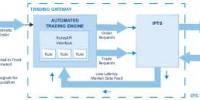Determined Fair Market Value (FMV)
Definition: Fair market value (FMV) is an estimation of a property’s market value, which is the price an asset will sell for on the open market. FMV has come to represent the price of an asset under the following normal set of conditions: prospective buyers and sellers are fairly aware of the asset, behaving in their best interests, free from undue trade coercion, and given a fair period of time to complete the transaction. This varies from the intrinsic value that a person can impose on the same asset on the basis of his or her own preferences and conditions.
Prospective buyers and sellers are reasonably knowledgeable about the asset, behaving in their own best interests, free of undue pressure to trade, and given a reasonable time period for completing the transaction. Given these conditions, an asset’s fair market value should represent an accurate valuation or assessment of its worth.
An estimate of the fair market price is sometimes subjective thanks to the circumstances of place, time, the existence of comparable precedents, and also the evaluation principles of every involved person. Opinions on value are always supported by subjective interpretation of accessible information at the time of assessment. This is often in contrast to an imposed value, during which a legal authority (law, tax regulation, court, etc.) sets a definite quantity upon a product or a service.
Municipal property taxes are often assessed based on the fair market value of the owner’s property. As the difference between the purchase price and the property’s fair market value can be substantial, tax authorities are interested in knowing the current fair market value.
For the insurance sector too, fair market value (FMV) is sometimes used. For example, if an insurance claim is made as a result of a house burning down, the insurance company that covers the loss will often cover only the amount up to the fair market value.

Methods Used to Determine Fair Market Value: Since determining the fair market value (FMV) of a property is not simply a matter of plugging numbers into a spreadsheet, the IRS has a list of accepted methods. Here are five ways real estate professionals determine the fair market value for real property:
Comparative Market Analysis: People can also estimate fair market value (FMV) of an item by comparing the property in question to other similar models on the market and additional market considerations. In the real estate industry, this is called a comparative market analysis (CMA)–it is commonly performed by a licensed agent. The recent selling prices of other similar items, whether the property is a building or equipment, is a reasonable estimate of what it would sell for if placed on the market today.
Professional Appraisal: Another way to calculate a property’s reasonable value is by hiring a true estate assessor. A true estate assessor could be a certified professional with training and ability regarding the numerous factors that determine the value of the property. When land appraisers value property, they use slightly more sophisticated models of comparative market research.
Replacement Cost: This method is often used with insurance companies. When an item’s value has increased over time, it should be taken as a measure of fair market value the cost of replacing the item for the same product. Hence, if a person purchased a home for $200,000 and it burns down, rebuilding the same home may cost $250,000. The $250,000 figure is the fair market value using replacement cost; not the $200,000.
Selling Price: This the simplest method, though it is accurate only if the transaction takes place near the time the fair market value is needed. According to the IRS, the selling price is the actual selling price of the property which an organization receives.
However, the terms will only give an accurate idea of fair market price if the transaction takes place near the time the fair market price is required. Whether or not the property is sold very recently, many factors may also cause a property being sold for fewer or quite fair market price. The season, marketing efforts, and also the experience of the Realtor selling the house can all affect the asking price. This suggests that a property’s damage isn’t always an accurate reflection of the home’s fair market price.
Valuations by Third Party Websites: The fifth and final approach is to use third party websites that use their own proprietary formulas to make estimates. Such independent estimation services do calculations based on different pieces of data.
For instance, Zillow, a web land estimate service, makes calculations regarding the fair market values of the property supported public records data, like recent sales and statistics about a vicinity. The corporate claims to possess a miscalculation rate of only 0% to three.6%.
Fair market value (FMV) is an impartial estimate that establishes a practical price if the important property was sold within the existing market conditions. It provides a solid start line for pricing a property purchasable or inheritance. Without knowing the fair value, the danger of loss or liabilities increases.
Information Source:
















